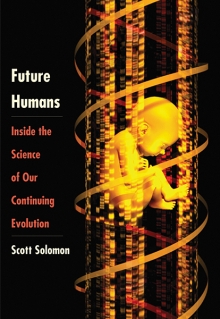Answering Quora on the Safety of Organic Foods and Microwaves
 I recently came across a question on Quora, Will it be okay if I eat healthy organic food, twice a day, with the stipulations that they be microwaved?. This is related to a previous entry of mine, Why I Oppose Organic Food, so I decided to repost my answer here, with a few edits.
I recently came across a question on Quora, Will it be okay if I eat healthy organic food, twice a day, with the stipulations that they be microwaved?. This is related to a previous entry of mine, Why I Oppose Organic Food, so I decided to repost my answer here, with a few edits.
---
It depends on what context you mean by 'okay'.
Let's start with the organic food. If you mean okay as far as your own health, then sure, organic food can be healthy. Here's a good summary from a previous Quora question, Jae Won Joh's answer to Is organic food a better option?. For the most part, organically grown food is about the same nutrition-wise as conventionally grown crops. Organic had slightly higher risks for some bacterial infections, but not by a huge amount. Organic tended to have less pesticide residue than conventional, but according to another study (see this Quora answer - Richard Muller's answer to What are some mind-blowing facts about food?) organic crops tend to be higher in carcinogens. This makes sense because varieties used for organic crops have to have higher natural resistance to pests, meaning the chemicals conferring this resistance will be present throughout the food, not just on the surface like sprayed pesticides which can be washed off.
But me, I tend to be a bit of a tree hugger. So when I think of 'okay', I think in terms of the whole environment. And this is the main reason I try to avoid organic foods. Habitat loss is perhaps the biggest threat to biodiversity in the world - even more of a threat than global warming. And studies show that organic crops on average give yields 20-25% lower than conventional techniques (with a lot of variation depending on the particular crop). That's huge. If all crops were grown organically, we'd need roughly 1/3 more cropland! And that means a whole lot more habitat destruction, and hence a lot more loss to biodiversity. And the thing is, 'conventional' farming will always be at least as good as organic, and most likely better, because conventional farms can use every technique available to organic farms plus some. (More info - Why I Oppose Organic Food).
As far as using a microwave, the health considerations are minuscule. Cooking only with a microwave can be slightly more nutritious, as described in this article, Microwave cooking and nutrition - Harvard Health. The shorter cooking time means less breakdown of nutrients, and less liquid means less nutrients are leached out to be dumped down the drain (like if you boil veggies). But if you're going to be cooking your food conventionally at home first and then using a microwave to re-heat it, then this nutrient loss will have already occurred when you initially cook the food. But as that article stated, "let's not get too lost in the details. Vegetables, pretty much any way you prepare them, are good for you, and most of us don't eat enough of them."
As far as the environmental impact, here's another article, Stove versus Microwave: Which Uses Less Energy to Make Tea?. Basically, the difference is tiny. Stove tops are slightly more efficient at boiling water than microwaves, while microwaves are slightly more efficient than full size ovens at heating food. But to put those slight differences in perspective, the article quotes a consumer advocate as saying "You'd save more energy over the year by replacing one light bulb with a CFL or turning off the air conditioner for an hour--not an hour a day, one hour at some point over the whole year." So the differences are hardly worth worrying about.
So to summarize, as far as health, organic has about the same nutritional value as conventionally grown food, only slightly higher risks as far as bacterial infection, and a bit more risk regarding cancer due to the higher carcinogen levels. Microwaves don't make much difference at all regarding health, especially if you're using them to reheat food, not for the initial cooking. On the environmental side, organic has a much higher negative impact due to lower crop yields and associated habitat destruction. Microwaves make hardly any environmental difference compared to conventional cooking techniques.
So all in all, while it's not super risky, I'd recommend against organics because of the higher levels of carcinogens and the bigger environmental impact. Using a microwave to reheat food is fine.

 I answered a Quora question a few weeks ago on
I answered a Quora question a few weeks ago on 
_reduced.jpg)